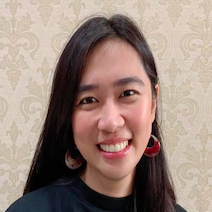

While President Duterte left out the status of women’s reproductive health and rights in the country from his 4th State of the Nation Address, the recent UN Human Rights Council resolution and false claims against those who advanced it demonstrate that the government still has a long way to go in respecting, protecting, and promoting the reproductive rights and human rights of all Filipinos. (READ: Quick point-by-point summary of Duterte's SONA 2019)
For the past 3 years, a slate of extrajudicial killings has been committed as part of the government’s anti-illegal drug campaign. Thousands have gone missing or have been killed, prompting the United Nations Human Rights Council to adopt a resolution condemning these acts. It urged the country to prevent more killings, conduct investigations, and ensure accountability.
Government officials who are sympathetic to the campaign have attempted to undermine those who passed the resolution, on the false pretext that such countries lack the moral legitimacy to condemn the Philippines because they permit legal abortion.
What such argument misses is that allowing legal abortion is necessary to ensure the survival, well-being, and human rights of women. Without it, we are condemning women to suffer and die from unsafe abortion.
When abortion is not legal, women and girls will often revert to unsafe methods to terminate an unwanted pregnancy. This is true in the case of Mylene, a young doctor who was raped by a local politician who paid for her education. After finding out she was pregnant, she attempted to self-induce an abortion, since our law forbids abortion even in instances of pregnancies resulting from sexual violence. Mylene ended up dying from complications that arose from her unsafe abortion and inability to access critical reproductive health care services.
Mylene is not alone. Hundreds of thousands of Filipinas face similar situations and, due to our outdated abortion penal laws, they too are at risk of dying from unsafe abortions. As highlighted by the Center for Reproductive Rights’ World's Abortion Laws Map, the Philippines is out of step with most of the world.
In the past 25 years, nearly 50 countries have liberalized their abortion laws, with 18 countries repealing complete bans in favor of respecting a woman’s life and autonomy and fulfilling their human rights obligations. (READ: Filipinas buy, sell, rate abortions in online forum)
There is no conflict between allowing legal abortions and respecting the fundamental right to life. The human rights, including the rights to life, of a pregnant woman or girl prevail over any government’s interest in prenatal protection. The Universal Declaration of Human Rights is clear that human rights are meant to apply at the moment of birth, and not before.
Both the drafters of the International Covenant on Civil and Political Rights (ICCPR) and the Human Rights Committee (HRC) – UN bodies monitoring states’ compliance with the ICCPR – have rejected the proposition that the right to life extends to prenatal life.
The Convention on the Rights of the Child (CRC), which mentions governments’ obligation to safeguard the child “before as well as after birth,” does not impart any right to the fetus and instead refers to the state’s duty to promote the health and nutrition of the pregnant woman. The Committee on the Rights of the Child, the UN body monitoring states’ compliance with the CRC, also called for liberalizing laws by decriminalizing abortion to protect girls’ rights to life and health.
Human rights bodies have specifically called on our government to remove criminal sanctions for women and girls who have abortions and the health care providers who assist them.
The HRC also called for the provision of “safe, legal and effective access to abortion where the life and health of the pregnant woman or girl is at risk, or where carrying a pregnancy to term would cause the pregnant woman or girl substantial pain.” It ruled that forcing a woman to continue a non-viable pregnancy to term or one that threatened her mental or physical health constituted a violation of the right to be free from cruel, inhuman and degrading treatment. (READ: How backstreet abortionists terminate 7-month pregnancies)
Thus, when politicians claim that the world cannot criticize the Philippines for extrajudicial killings because their countries permit abortion, they are simply drawing attention to our government also being guilty of another human right violation, i.e., denying women access to abortion care.
The Special Rapporteur on extrajudicial, summary or arbitrary executions even called deaths related to legal bans on abortion as “gender-based arbitrary killing[s]…as a result of discrimination enshrined in law.”
Permitting access to safe and legal abortion saves lives; extrajudicial killings take them away. Our government must respect the life of Filipinos by taking steps to stop extrajudicial killings and provide legal abortions. Until then, the government will continue to endanger the lives of every Filipino. – Rappler.com
Jihan Jacob is a woman human rights defender who works for the Center for Reproductive Rights, a global non-governmental organization that uses the power of law to advance reproductive rights as fundamental human rights around the world. She is a member of the Philippine Safe Abortion Advocacy Network, a local network of civil society groups committed to working toward achieving the full realization of women’s and girls’ sexual and reproductive health and rights.